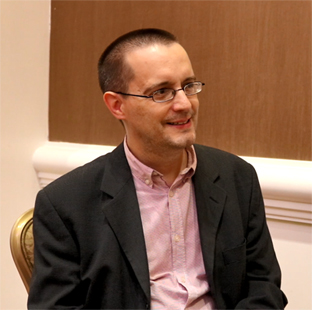Understanding the Peer Review Process: An Interview With Michael Willis (Part 2)

 In the final part of this interview series, we discuss the increase in the number of retractions as well the future challenges for the academic publishing industry and the current system of peer review management. Michael also shares his views on how authors should overcome rejection notices issued by journals as well as the need for more authors to consider peer reviewing on a regular basis.
In the final part of this interview series, we discuss the increase in the number of retractions as well the future challenges for the academic publishing industry and the current system of peer review management. Michael also shares his views on how authors should overcome rejection notices issued by journals as well as the need for more authors to consider peer reviewing on a regular basis.
Kuntan: There has been a recent increase in the number of retractions. How can peer review play a role in arresting this trend?
Michael: I don’t think that the rate of retractions is necessarily increasing, instead we are seeing more retractions mainly for two reasons: the number of publications is growing, and we are using new technologies to identify cases where publication ethics has been flouted. I am not sure that we can expect reviewers to check everything that they look at—as this is not the function of peer review. Peer review is supposed to look at the quality and content of the manuscript—but as a couple of people have said to me on different occasions, peer review in the whole editorial process is really about trust.
As publishers and managing editors, we have to be as streamlined as we can in our processes, very careful about what we are looking at, and making sure that we have tight processes in place. For example, we have to make it easy for reviewers to look at images and confirm that there is no clear evidence of image manipulation. If reviewers have doubts as to whether a paper has been plagiarized, then either we can give them the tools to check that or we can check it ourselves. But peer review is one thing and editorial governance and control is another thing.
Kuntan: According to you, what are the future challenges in peer review?
Michael: I think that for me, the main challenge is finding or expanding the reviewer pool and making it better qualified, so as to ensure that peer review remains a robust, efficient, high-quality mechanism supporting the publication of research. This involves finding ways to help people review papers well, and giving them tools. Journals are also finding that there is an increasing demand on researchers’ time. Well-qualified, well-established researchers may get 10 to 20 emails in a week inviting them to review a paper and every journal is competing for that bit of space in the reviewers’ schedule. So we need to find a way to expand the reviewer pool and not leave a relatively small minority of researchers to do all the work.
Another challenge is to make sure that peer review remains a credible mechanism in the face of cynicism about the quality of scientific research coming out. We need to make sure that the public at large feels confident about the science that is produced and published being credible and properly validated. This means ensuring that reviewers do a good job of reviewing. Bad reviews don’t happen because reviewers are deliberately bad but because they have a lot of demands. So perhaps there is an issue of getting them to take enough time out, but also about giving them the tools to do their job better.
Kuntan: In your opinion, what are the main reasons that lead to paper rejection?
Michael: There are various common reasons. It could be that the author has submitted to the wrong journal because the paper doesn’t fit the aim and scope of the journal. It could also be that the paper has been poorly written and an editor finds it quite difficult to make any sense of it, in which case the advice is to get help so that the paper is written more professionally. An initial scan of the paper might find that there is not enough data; for example, if it is a survey of participants, there may not be enough participants to justify the conclusions or the methodology could be unsound. In our increasingly electronic online world, there are new journals whose criteria for accepting papers are no longer based on whether the journal has enough space but rather, the central question is whether the science and the methodology are sound. These are usually the most fundamental reasons why a paper is rejected.
Kuntan: Absolutely. Researchers need to really focus on making sure that the science is good and can be reproduced, and that it doesn’t have major loopholes in how the science was conducted.
Michael: Journals can actually help with that. They should have protocols and policies in place and make sure that authors adhere to them so that when a paper comes to the journal it is compliant with the journal guidelines. Journals should also have data policies that tell authors what they should be providing to the journal before they submit.
Kuntan: What advice would you give ESL authors seeking to get published in international journals?
Michael: Their number-one concern should be to have their paper checked by a native English speaker before they submit it. If you are seeking to publish in an English-language journal, the biggest turnoff for any editor is to get a paper that doesn’t read well. It makes the editor’s job much harder, and the reviewer’s job harder too if the paper is sent out for review. It then becomes hard to give the paper a fair hearing in such a situation. The science may be very sound, but if the English is poor, the editor will have trouble seeing the quality of the work because it won’t be obvious. So if your paper hasn’t been checked by a native English speaker, then get it done.
Another key thing is to look at author guidelines. Journals publish them for a good reason, because those are the things that matter to the journal. They aren’t just about formatting your paper in a certain way; they can also include essential substantive information. Following these guidelines in creating your finished product is part of making your submission as high-quality as possible.
Kuntan: What aspects of peer review should all authors be aware of?
Michael: I would like all authors to be aware that they can be peer reviewers too if they are not already. Often in my job, it is very easy to think of reviewers and authors as different people, but they are not; they are exactly the same community. If you are an author and not already peer reviewing for a journal, then try to get an opportunity to do so, because it will be rewarding in its own right. You will find that it will help you to formulate your own research and write better papers.
Kuntan: Apart from this, is there anything else that you would like to convey to our authors or viewers?
Michael: One of the big topics has been research integrity and publishing ethics. Actually, this is a perennial thing and is one of the most interesting topics and also one that gets people in publishing and in journal management most engaged. For any author, it is really important to make sure that you understand publication ethics and research ethics. It is worth investing the time to know what the standards are in international publishing ethics, because that will help you right from the beginning of your research projects. It will help you to write your papers, and it will ensure that your paper, as it goes through the peer review process and hopefully gets accepted and published, will be at the highest standard. This is in your interest as an author and in the interest of the scientific community.
(This interview is a part of our interview series of connecting scholarly publishing experts and researchers.)









